Filter by
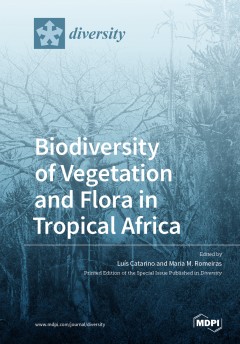
Biodiversity of Vegetation and Flora in Tropical Africa
African ecosystems comprise a wealthy repository of biodiversity, with a high proportion of native and endemic plant species, which makes them biologically unique and providers of a wide range of ecosystem services. A large part of African populations, in both rural and urban areas, depend on plants for their survival and welfare, but many ecosystems are being degraded, mostly due to the growin…
- Edition
- -
- ISBN/ISSN
- 9783039435319, 9783039435326
- Collation
- 180
- Series Title
- -
- Call Number
- -
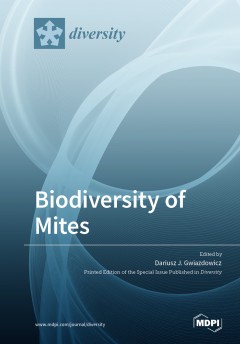
Biodiversity of Mites
The world of mites, being exceptionally diverse and rich, may be analysed both in historical and geographical terms. It is commonly known that these tiny, ubiquitous invertebrates are found both in terrestrial and aquatic ecosystems; additionally, they are relatively abundant in aeroplankton. The species composition and character of their assemblages vary, and they are different in the polar, t…
- Edition
- -
- ISBN/ISSN
- 9783036518541, 9783036518534
- Collation
- -
- Series Title
- -
- Call Number
- -

Beyond Empire and Nation; The Decolonization of African and Asian societies, …
The decolonization of countries in Asia and Africa is one of the momentous events in the twentieth century. But did the shift to independence indeed affect the lives of the people in such a dramatic way as the political events suggest? The authors in this volume look beyond the political interpretations of decolonization and address the issue of social and economic reorientations which were nec…
- Edition
- -
- ISBN/ISSN
- 9789004260443
- Collation
- 291
- Series Title
- -
- Call Number
- -
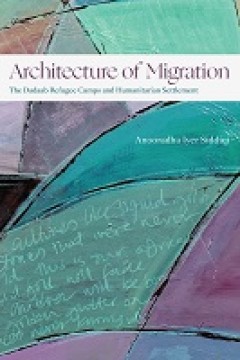
Architecture of Migration
Focusing on the Dadaab refugee camps established in 1991 on the Kenya-Somalia border, Anooradha Iyer Siddiqi shows how a refugee camp’s aesthetic and material landscapes—even if born out of emergency—reveal histories, futures, politics, and rhetorics.
- Edition
- -
- ISBN/ISSN
- 9781478025245
- Collation
- oer.unej.ac.id
- Series Title
- Theory in Forms,
- Call Number
- -
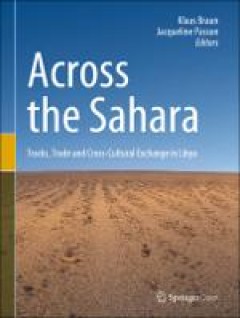
Across the Sahara
This open access book provides a multi-perspective approach to the caravan trade in the Sahara during the 19th century. Based on travelogues from European travelers, recently found Arab sources, historical maps and results from several expeditions, the book gives an overview of the historical periods of the caravan trade as well as detailed information about the infrastructure which was necessa…
- Edition
- -
- ISBN/ISSN
- -
- Collation
- oer.unej.ac.id
- Series Title
- -
- Call Number
- -
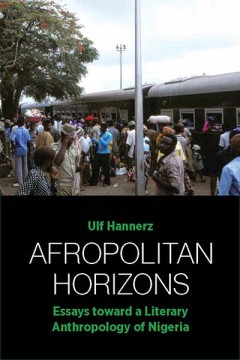
Afropolitan Horizons : Essays toward a Literary Anthropology of Nigeria
Nigeria is a country shaped by internal diversity and transnational connections, past and present. Leading Nigerian writers from Chinua Achebe, Amos Tutuola and Wole Soyinka to Chimamanda Ngozi Adichie and Teju Cole have portrayed these Nigerian issues, and have also written about some of the momentous events in Nigerian history. Afropolitan Horizons discusses their work alongside other novelis…
- Edition
- -
- ISBN/ISSN
- 9781800732995
- Collation
- -
- Series Title
- -
- Call Number
- -

Afrikaners and the boundaries of faith in post-apartheid South Africa
This book examines the shifting moral and spiritual lives of white Afrikaners in South Africa after apartheid. The end of South Africa’s apartheid system of racial and spatial segregation sparked wide-reaching social change as social, cultural, spatial and racial boundaries were transgressed and transformed. This book investigates how Afrikaners have mediated the country’s shifting boundari…
- Edition
- -
- ISBN/ISSN
- 9781003185574
- Collation
- 195
- Series Title
- Routledge Contemporary South Africa
- Call Number
- -
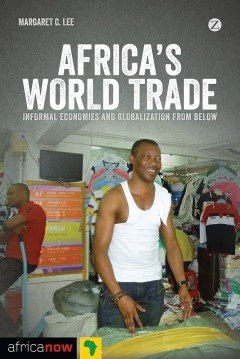
Africa's world trade
Are Africa's world markets really contributing to development across the continent for individuals, nations and regions? This is the key question posed by Margaret Lee in this provocative book, in which she argues that all too often the voices of African traders are obscured amid a blizzard of statistical analysis. However, it is these very voices - from those operating on the ground as formal …
- Edition
- Nordiska Afrikainstitutet
- ISBN/ISSN
- 9788855263726
- Collation
- -
- Series Title
- Africa Now
- Call Number
- -
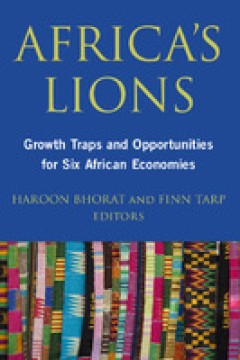
Africa's Lions
Africa's Lions examines the economic growth experiences of six fast-growing and/or economically dominant African countries. Expert African researchers offer unique perspectives into the challenges and issues in Ethiopia, Ghana, Kenya, Mozambique, Nigeria, and South Africa. Despite a growing body of research on African economies, very little research has focused on the relationship between econo…
- Edition
- -
- ISBN/ISSN
- 9780815729501
- Collation
- -
- Series Title
- -
- Call Number
- -

African Principles on the Law Applicable to International Commercial Contracts
This booklet contains the first draft of the envisaged African Principles on the Law Applicable to International Commercial Contracts. The proposal could be used by national legislators on the continent and African economic integration organisations, particularly the African Union, in, respectively, domestic legislation and regional or supranational laws of a soft or binding nature. The existen…
- Edition
- -
- ISBN/ISSN
- -
- Collation
- -
- Series Title
- -
- Call Number
- -
 Computer Science, Information & General Works
Computer Science, Information & General Works  Philosophy & Psychology
Philosophy & Psychology  Religion
Religion  Social Sciences
Social Sciences  Language
Language  Pure Science
Pure Science  Applied Sciences
Applied Sciences  Art & Recreation
Art & Recreation  Literature
Literature  History & Geography
History & Geography